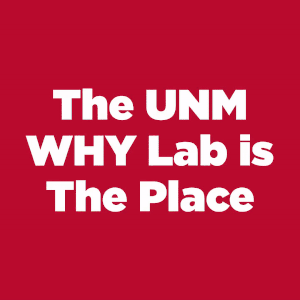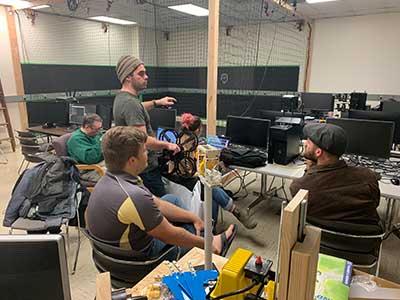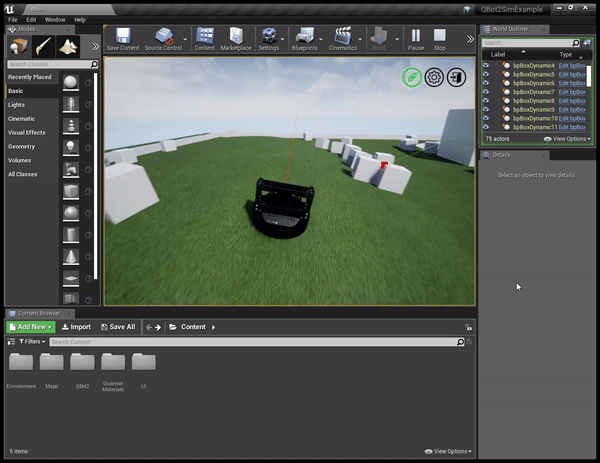Recent News
Seminar: Stavroula Foteinopoulou
November 14, 2024
Seminar: Mark Gilmore
November 8, 2024
Seminar: Constantinos S. Pattichis
October 30, 2024
$3 million NSF grant will help create graduate certificate in AI and autonomy
October 21, 2024
News Archives
WHY Lab Opens Doors to All ECE Students
January 25, 2020

A new laboratory experience, called The WHY Lab, opened its doors to all ECE students in January 2020. Located in room 132, the Lab welcomes freshmen who are searching for a new avenue of study, seniors who are putting together their final Design Project and everybody else in-between!
The WHY lab was first envisioned by Dr. Ramiro Jordan (UNM ECE) and Dr. Thomas Lee (Quanser) as an experiential learning approach that would introduce freshmen to the Electrical and Computer Engineering Department at UNM.
Jordan and Lee’s vision was to get students to discover the parts of Electrical and Computer Engineering that best interested and suited them. But this could be a bit overwhelming when all you know are cell phones, computer applications and have a limited exposure to math, chemistry, and physics!
The hope was that after working in the WHY Lab, students would develop a better understanding of how electrical and computer engineers design the systems and the computers that they use.
The WHY Lab will support ECE 101 – the Introduction to Electrical and Computer Engineering course.The new mission of the WHY Lab will include support for undergraduate research efforts that help students develop a research interest.
And at the heart of this mission is a mentoring process that combines a mixture of guidance and peer mentoring.
The guidance part takes the form of helping students organize their thinking into a doable goal or focus. It also involves helping students find Faculty sponsors.
 Peer mentoring involves hiring promising students to develop expertise with lab resources. The students will then pass along what they have learned to other students who are interested in using the resources.
Peer mentoring involves hiring promising students to develop expertise with lab resources. The students will then pass along what they have learned to other students who are interested in using the resources.
The WHY Lab’s current two projects involve developing a virtual lab and interfacing lab resources with the virtual lab.
The first project uses the “Unreal Engine” to create a virtual reality environment for experimentation. This takes on three goals: 1) Creating a virtual lab that someone can log into and use lab assets such as drones and ground robots. 2) Creating a virtual environment that the drones and ground robots can interact with. For example, a 3-Dimensional maze that the drone can fly through or a ground robot can navigate. This environment will provide feedback clues to the operator through the Haptic Robot and manage vehicle responses. And 3) Provide an opportunity for the students to learn about a “real-time” programing environment that interacts with people and hardware.
The WHY Lab also supports Senior Design Projects, the development of radio communications systems, health monitoring, ruggedized sensor packages and to drone art projects.
The WHY lab provides a variety of official and unofficial classes that focus on learning 3D printing, the basics of operating a drone, and an introduction to real-time programming applications using devices such as Raspberry Pis, Arduinos, and FPGAs or MATLAB’s Simulink/Stateflow environments.
For more information about how you can become involved with the WHY Lab please contact Dr. Ramiro Jordan or Eric Hamke.
 |
|
|

